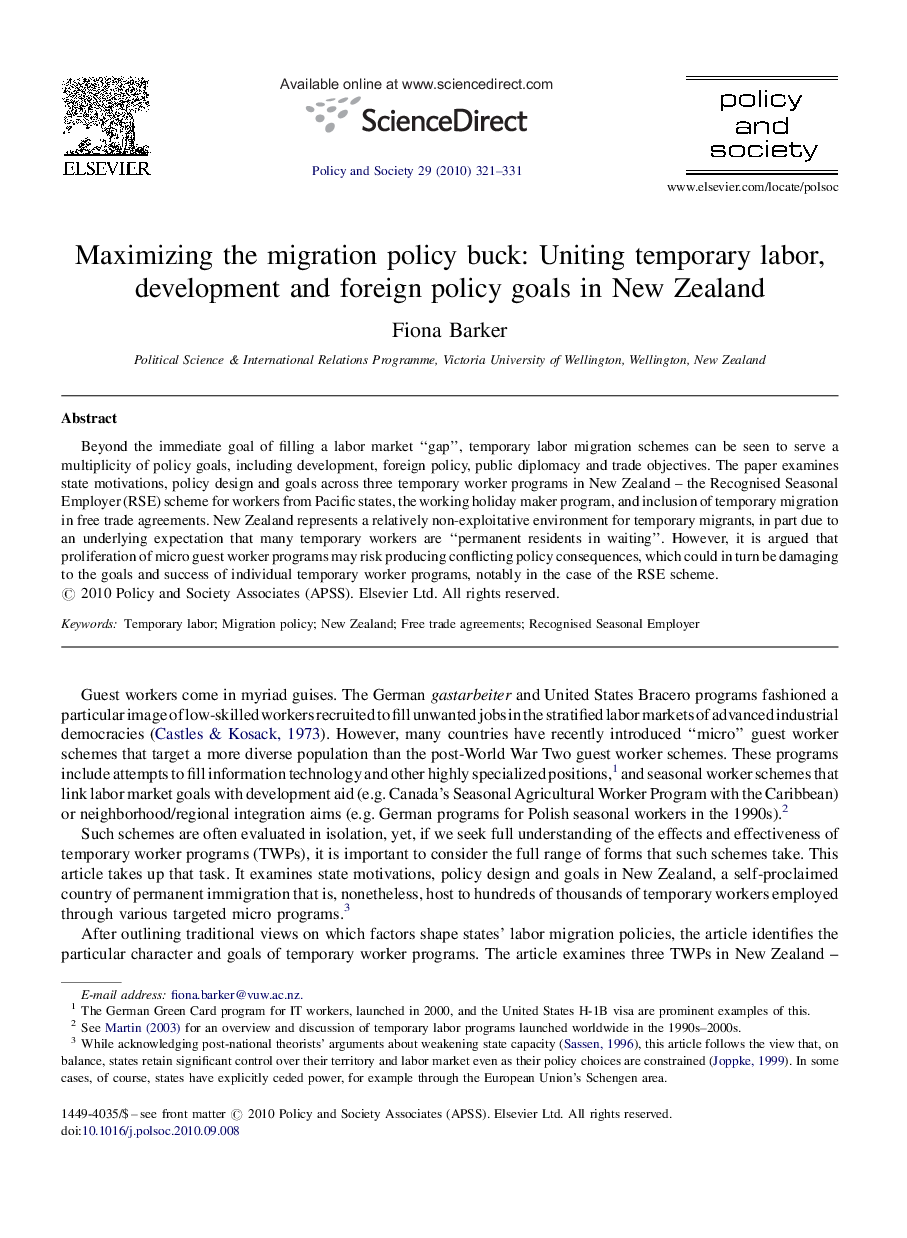| Article ID | Journal | Published Year | Pages | File Type |
|---|---|---|---|---|
| 1061674 | Policy and Society | 2010 | 11 Pages |
Beyond the immediate goal of filling a labor market “gap”, temporary labor migration schemes can be seen to serve a multiplicity of policy goals, including development, foreign policy, public diplomacy and trade objectives. The paper examines state motivations, policy design and goals across three temporary worker programs in New Zealand – the Recognised Seasonal Employer (RSE) scheme for workers from Pacific states, the working holiday maker program, and inclusion of temporary migration in free trade agreements. New Zealand represents a relatively non-exploitative environment for temporary migrants, in part due to an underlying expectation that many temporary workers are “permanent residents in waiting”. However, it is argued that proliferation of micro guest worker programs may risk producing conflicting policy consequences, which could in turn be damaging to the goals and success of individual temporary worker programs, notably in the case of the RSE scheme.
